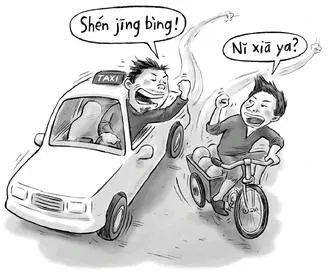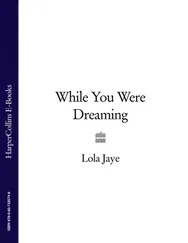不想耳食你 bùxiǎngěrshínǐ ( boo shahng er shih nee)
I don’t even want to talk to you; I’m ignoring you. Literally, “I don’t want to ear eat you.” Originally Sichuan slang.
帮帮忙 bāngbāngmáng ( bahng bahng mahng)
Literally means “help” but used in Shanghai to admonish someone before rebutting something they’ve said. The equivalent of sarcastically saying “come on” or “please” or “give me a break.”
小样了吧 xiǎo yàng le ba ( shyaow yahng luh bah)
Said when laughing at or mocking someone else. Similar to “ha-ha” or “suck that.” Used in northeastern China. Literally something like “(look at) that little face!”
哑了啊? yǎ le a? ( yah luh ah)
Literally, “Are you mute?” 哑 Yǎ means “dumb” or “mute.” You can ask this when you say something and don’t get a response.
歇菜 xiē cài ( shih tsigh)
Knock it off; quit it. Literally “rest vegetable.” A slangy but mild way to tell someone to stop doing something. Used in northern China only.
你吃错药了吗? Nǐ chī cuò yào le ma?( nee chih tswuh yow luh ma)
Did you take the wrong medicine? A mildly insulting way to imply that someone is acting rude or strange.
去! Qù!(chee)
Shut up! Literally “go.” Usually said affectionately.
去你的! Qù nĭ de!(chee nee duh)
Get lost! Stop it! Up yours! Literally “go to yours.”
闭嘴! Bì zuǐ!(bee dzway)
Shut up! Literally “close mouth.” A more emphatic option is 你给我闭嘴! Nǐ gěi wǒ bìzuǐ! ( nee gay wuh bee dzway ), literally “Shut your mouth for me!”
切! Qiè!(chyih)
A noise expressing disdain. Equivalent to saying “Please!” or “Whatever.”
烦 fán ( fahn)
Irritating, annoying, troublesome. Common uses include 你烦不烦啊! Nǐ fán bù fán a! (nee fahn boo fahn ah), meaning “You’re really freaking annoying!” (literally, “Aren’t you annoying!”), and 烦死人了你! Fánsǐ rén le nǐ! (fahn sih ren luh nee): “You’re annoying me to death!”
你恨機車 nǐ hěn jīchē ( nee hun gee chuh)
You’re really annoying. Taiwan slang for someone who is bossy or picky or otherwise annoying. Literally, “You are very motorcycle” or “You are very scooter.” It’s also common to just say 你恨機 nǐ hěn jī ( nee hun gee ) for short. Supposedly, this expression originally came from 雞歪 jīwāi ( gee why ), meaning one’s dick is askew.
你二啊! nǐ èr a!(nee er ah)
You’re so stupid. Literally, “You’re [number] two.” 二 Er ( er ) means “two” in Chinese, but in northeast China it can also be slang for “stupid” or “silly,” referring to 二百五 èrbǎiwǔ ( er buy woo ) (see page 19).

脑子坏了吧? nǎozi huài le ba?(nee now dz hwie luh bah)
Is your brain broken? Used exactly the way you’d use the English phrase.
你瞎呀? nǐ xiā ya?(knee shah yah)
Are you blind? Used, for example, when someone steps on your foot.
太过分了 tài guòfèn le ( tie gwuh fen luh)
This is outrageous! This is going too far! Literally “much too far.”
受不了 shòubùliǎo ( show boo lyaow)
Literally “unacceptable” and can mean “This is unacceptable” or “I can’t take it.” A stronger form is 真受不了 zhēn shòubùliǎo ( jen show boo lyaow ), literally “really unacceptable.”
你敢? nǐ gǎn? ( nee gahn)
Literally, “Do you dare?” and used in a challenging way when arguing or playing around. It’s like saying, “Go ahead-I dare you!”
讨厌 tǎoyàn ( taow yen -the first syllable rhymes with “cow”)
Disgusting, troublesome, nuisance, nasty. Can also be a verb that means “to hate” (doing something). However, it is also common for girls to say this word by itself to express petulance, frustration, or annoyance.
你很坏! nǐ hěn huài!(nee hun hwigh)
You’re so bad! Often used between friends in an unserious way or flirtingly between couples. However, like the rest of these expressions it can also be used in a genuinely angry way, perhaps by a mother toward a child. For example, 你怎么那么坏 nǐ zěnme nàme huài ( nee dzuh muh nuh muh hwigh ) means literally “How can you be so bad?” and is like saying, “ What is wrong with you?”
恶心 ěxīn ( uhh sheen)
Nauseating, disgusting, gross. Alternately, 真恶 zhēn ě ( jen uhh ), “very nauseating” or “so gross.” Ěxīncan also be used as a verb to mean “to embarrass someone” or “to make someone feel uncomfortable or awkward.”
没门儿 méi ménr ( may murr)
No way! Fat chance! A rude, curt way to say no. Literally “no door.” Used in Beijing.
废话 fèihuà ( fay hwa)
Nonsense. Literally “useless words.” An extremely common expression. Northern Chinese sometimes instead say 费! fèi!(fay), literally “wasteful,” to mean “Nonsense!”
瞎说 xiāshuō ( shah shwuh)
To talk nonsense. Literally “to speak blindly.” Common usages include 别瞎说 bié xiāshuō (byih shah shwuh), meaning “don’t be ridiculous” or “stop talking nonsense”, and 你瞎说 nǐ xiāshuō ( nee shah shwuh ), “you’re talking nonsense” or “you’re full of crap.”
Any of the following synonyms may be swapped for xiāshuōin the two samples given above:
胡扯 húchě ( hoo chuh ), “blab messily”
胡说 húshuō ( who shwuh ), “speak messily”
乱说 luànshuō ( lwun shwuh ), “speak chaotically”
鬼扯 guǐchě ( gway chuh ), “ghost blab”
说白话 shuō báihuà ( shwuh buy hwa ), “speak white
words” (this one is seldom used among younger people
now)
扯淡 chědàn ( chuh dahn)
To talk nonsense, to bullshit (but not as profane as “bullshit”). Used in northern China.
放屁 fàngpì ( fahng pee)
Bullshit, nonsense, lies, whatever, shut up! Literally “fart.” Used as a mild expletive.
狗屁 gǒupì ( go pee) or 放狗屁 fàng gǒupì ( fahng go pee)
Bullshit, nonsense. Literally “dog fart” and “release a dog fart,” respectively.
有屁快放 yǒu pì kuaì fang ( yo pee kwigh fahng -kuaì rhymes with “high”)
A more vulgar way to say “Spit it out!” or “If you have something to say, hurry up and say it.” Literally means, “If you need to fart, hurry up and let it out.”
屁话 pìhuà ( pee hwa)
Bull, nonsense. Literally “fart talk.” Can be exclaimed alone to mean “Nonsense!” or “Yeah, right!”
狗屁不通 gǒupì bùtōng ( go pee boo tohng)
Incoherent, nonsensical. Literally “dog unable to fart.” Exclaimed in response to something, it means roughly “that makes no sense” or “that’s total bull.” Can also be used as an adjective to describe someone who doesn’t know what they’re talking about.
(Mostly affectionate) name-calling
书呆子 shūdāizi ( shoo die dz- zi sounds like saying a very short bzz , but with a d sound instead of the b)
Читать дальше











